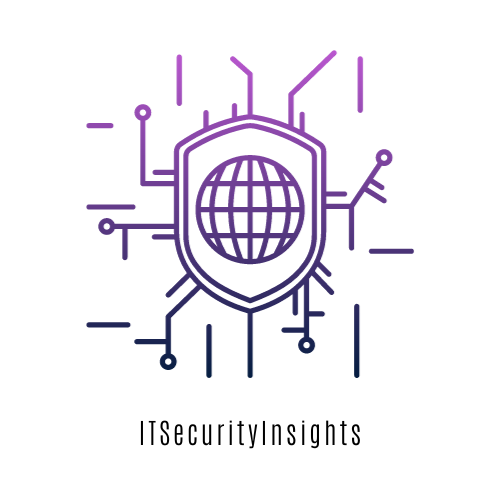Most people think of the internet as what they see every day—Google searches, social media, and online shopping. But that’s just the surface. Beneath it lies a hidden world, a digital underground where criminals trade stolen data, hackers sell exploits, and entire marketplaces exist beyond the reach of traditional law enforcement.
This is the Dark Web—and if you don’t understand how it works, you’re already behind.
The Three Layers of the Internet
Before diving into the Dark Web, you need to understand the structure of the internet:
- Surface Web – The everyday internet, indexed by search engines like Google. It’s about 5% of the total internet.
- Deep Web – The unindexed part of the internet, like private databases, academic research, and internal business networks.
- Dark Web – A small, encrypted section of the Deep Web, accessible only through special software like Tor (The Onion Router). This is where the real cybercriminal activity happens.
How the Dark Web Works
The Dark Web isn’t just a place—it’s a network designed for privacy and anonymity. It uses Tor, which routes your connection through multiple encrypted layers, bouncing traffic across the globe.
Imagine sending a letter, but instead of delivering it directly, it gets passed through multiple untraceable couriers before reaching its final destination. That’s how Tor works, making it nearly impossible to track users.
This is why cybercriminals love the Dark Web. It gives them a safe space to operate—but make no mistake, law enforcement is watching.
What Hackers Buy and Sell on the Dark Web
Hackers aren’t just script kiddies looking for trouble. The Dark Web has evolved into a massive black market for cybercrime. Here’s what you’ll find:
1. Stolen Credentials
Ever wonder what happens to passwords leaked in a data breach? They’re sold in bulk on the Dark Web.
- Example: A hacker dumps millions of login credentials from a breached company. Buyers use them for credential stuffing attacks to break into other accounts.
- Real-World Case: The 2021 Facebook breach exposed 533 million users’ phone numbers, later found on Dark Web forums for sale.
2. Credit Card & Bank Account Data
Criminals sell “fullz”—complete credit card details including name, address, CVV, and Social Security numbers.
- Price Range: A basic stolen credit card goes for $5–$20, while high-limit cards with full details can sell for $100+.
3. Malware-as-a-Service (MaaS)
Not a hacker? No problem. Cybercriminals rent out malware, ransomware, and phishing kits.
- Example: WannaCry ransomware, which infected 200,000 computers worldwide, originated from Dark Web exploits.
4. Fake IDs, Passports, and Documents
Identity theft is big business. You can buy fake passports, driver’s licenses, and even social security numbers.
- Example: Some vendors offer “custom passports”—real stolen identities for travel fraud.
5. Exploit Kits & Zero-Day Vulnerabilities
Cybercriminals trade zero-day exploits—unknown security flaws that companies haven’t patched yet.
- Example: In 2023, Google Chrome zero-day vulnerabilities were found on Dark Web forums, selling for tens of thousands of dollars.
How Hackers Use the Dark Web to Stay Anonymous
Hackers don’t just use the Dark Web to buy and sell—they use it to cover their tracks. Here’s how:
- Bitcoin & Monero for Untraceable Payments – Cryptocurrency is the currency of choice, with Monero (XMR)being nearly untraceable.
- Bulletproof Hosting – Servers in countries with weak cybersecurity laws allow criminals to host malware and phishing sites without takedown risks.
- Encrypted Communications – Dark Web criminals use PGP encryption and private forums to communicate securely.
Even with these precautions, law enforcement is getting smarter—which is why major Dark Web markets don’t last forever.
Major Dark Web Busts (When Hackers Get Caught)
The Dark Web isn’t untouchable. Law enforcement has infiltrated and shut down several major criminal marketplaces:
1. Silk Road (2013)
The first major Dark Web marketplace, used for drugs, fake IDs, and hacking tools.
- Busted by: FBI
- How: They traced a server leak to the site’s founder, Ross Ulbricht.
- Result: Ulbricht was arrested and sentenced to life in prison.
2. AlphaBay (2017)
The largest Dark Web market at its peak, AlphaBay sold hacking tools, stolen data, and drugs.
- Busted by: FBI & Europol
- How: A mistake in the site’s server code leaked an admin’s real IP address.
- Result: The site’s founder was arrested in Thailand and later found dead in his cell.
3. Hydra (2022)
A $5.2 billion Dark Web marketplace known for laundering cryptocurrency and illegal transactions.
- Busted by: German police
- How: Blockchain forensics tracked crypto transactions back to Hydra’s servers.
- Result: 543 Bitcoins seized, market shut down.
These cases prove that no Dark Web market is truly safe. Given enough time, law enforcement always finds a weak link.


How to Protect Yourself from Dark Web Threats
Even if you never visit the Dark Web, your data might already be there. Here’s how to stay safe:
- Use Strong, Unique Passwords – Never reuse passwords. Use a password manager to generate and store them.
- Enable Two-Factor Authentication (2FA) – Even if your password is leaked, hackers can’t access your accounts without the second factor.
- Monitor for Data Breaches – Check sites like Have I Been Pwned to see if your data is compromised.
- Avoid Public Wi-Fi for Sensitive Transactions – Hackers use Man-in-the-Middle attacks to steal login credentials.
- Watch for Phishing Scams – Most stolen credentials come from fake emails and scam websites—never click suspicious links.
Final Thoughts: The Dark Web Isn’t Just for Criminals
While the Dark Web is a haven for cybercriminals, it’s also used for legitimate reasons—whistleblowers, journalists in oppressive regimes, and privacy advocates rely on it to communicate safely.
However, for every journalist using it for security, there are 100 hackers using it to exploit victims. Understanding the Dark Web isn’t about fear—it’s about awareness.
If you don’t know how cybercriminals operate, how can you defend yourself?
Stay informed. Stay secure. And remember—on the internet, what you don’t see can still hurt you.


